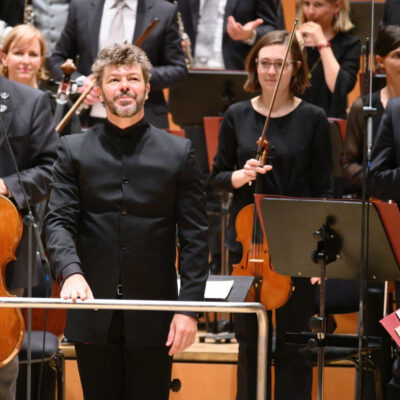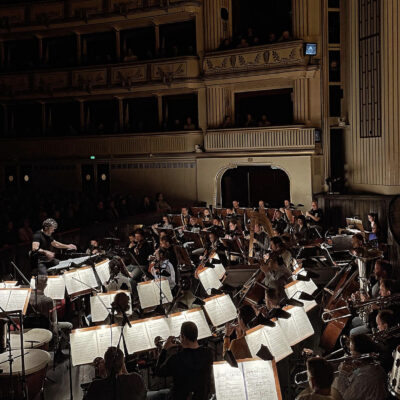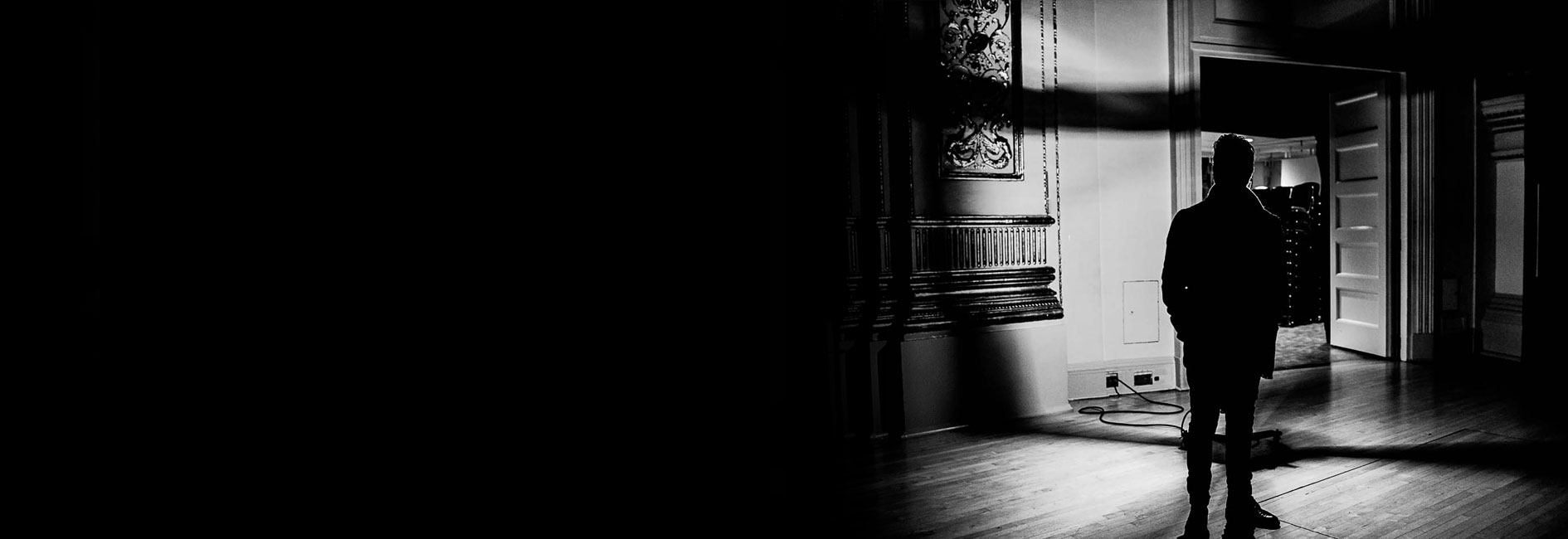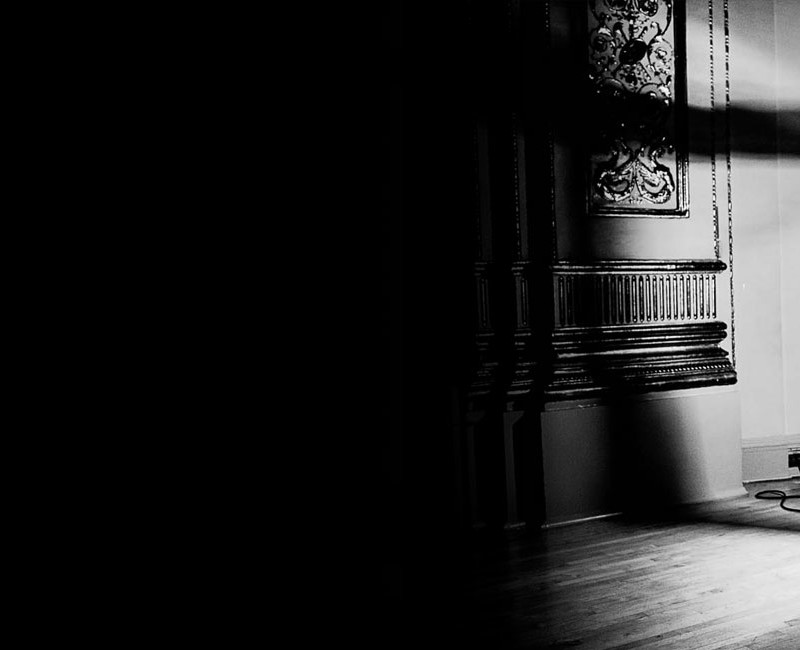“A luminous and urgent performance, deftly balancing the shifts from moody ruminations to bouts of exuberance…. Heras-Casado is the thinking person’s idea of a hotshot young conductor.”
The New York Times

Gewandhausorchester
10 Nov 2024
Leipziger Volkszeitung, Peter Korfmacher
“Better than Heras-Casado and the Gewandhaus Orchestra carrying Faust and Tamestit through the ethereal beauties of this graceful work is simply not possible. (…) Because this perfection is not exhausted in cold routine, but tells a story of life. Because amidst the ubiquitous smiles, islands of deep sorrow touch the heart more profoundly. Because conductor, soloists, and orchestra merge into an organism that unfolds, experiences, and enlivens wit, charm, elegance, bliss, sorrow, and virtuosity together. With a sound, from a gesture, from a breath – and yet each time subtly distinct.”

Pablo Heras Casado and Deutsches Symphonie-Orchester Berlin Reviews
30 Oct 2024
Tagesspiegel (online), Frederik Hanssen
“Guest conductor Pablo Heras-Casado lifts the often oppressive weight from this 80-minute colossus [Bruckner’s Fifth Symphony]. By stripping away the text of all that’s darkly Catholic—the Almighty’s dramaturgy of fear, the devout Christian’s emotional prison of repressed impulses, confession, and penance—he brings the piece out of the church, into the light, into nature, where the sun burns, shadows fall sharply, storms may break, and raw forces come into play.”

BR Klassik Selects Pablo Heras-Casado’s New Bruckner Album as “Album of the Week”
29 Oct 2024
BR Klassik, Fridemann Leipold “Album of the Week”
“The idiosyncrasies of the historical instruments collide harshly, coarsely and rawly in Bruckner’s massive agglomerations. On the other hand, their characteristic timbres are much more pronounced than on modern instruments. Imperfections are part of the sound aesthetic, because the old wind instruments do not respond as well at the onset. On the other hand, Heras-Casado and the vibrato-less strings succeed in playing wonderfully lyrical phrases – the emotional landscapes in the slow movement have rarely sounded so painful, so bleak.”
“The famous Hunting Scherzo profits especially from the historical sound design of this recording – the old horns blare out so crisply, cheekily and boldly that it is a delight. In the Scherzo’s trio, the contrast could hardly be greater: it sounds sallow and monotonous, like a hurdy-gurdy – as if Schubert’s ‘Winterreise’ were wafting over.”
“This Bruckner recording is a shock at first in its radicalism, austerity and bone-dry sound: this is what the Fourth Symphony might actually have sounded like back then. A far cry from the lush beauty of sound of our day. An exercise in asceticism that cleanses the ear. In their purification of Bruckner’s ‘Romantic’ symphony, Pablo Heras-Casado and Anima Eterna do away with all clichés and take a ruthless look at the fractures of the epoch.”

SWR Tour Press Reviews
23 Sep 2024
Stuttgarter Nachrichten, Susanne Benda
A lot of C major, a lot of jubilation.
Pablo Heras-Casado does not celebrate a Bruckner of rush and ecstasy on the podium. Rather, without a baton, and thus feeling very close to the sound, he searches for connections between the blocks, for special sound colors amidst the minimalist but never mechanical repetitions. The conductor carefully builds up the climaxes in the first movement, where the brass in particular shines, and in between he repeatedly focuses on individual bars – right up to a passage in the solo trumpet, which almost seems to swing here.

GRAFENEGG: Bayreuth Festival Orchestra and Pablo Heras-Casado in Austria.
04 Sep 2024
Onlinemerker, Manfred A. Schmid

Heras-Casado and the ideal ‘Parsifal’ (Spanish Review)
13 Aug 2024
Scherzo, Justo Romero
Heras-Casado and the ideal Parsifal
Pablo Heras-Casado triumphed once again in Bayreuth, the Wagnerian sanctuary, where he has established himself as one of the most appreciated and blessed figures by the thousands of fervent music lovers who, year after year, make a pilgrimage to this Bavarian town of barely 75,000 inhabitants, where Wagner himself built a theater of unique acoustics and characteristics in 1876. The thunderous ovation heard by the Granada-born conductor when he burst in to salute at the end of the performance was truly exceptional, even in a place as mythomaniacal as Bayreuth.

Pablo Heras-Casado drives the Bayreuth festival orchestra to peak performances
01 Aug 2024
BR Klassik, Tobias Hell
“But the star of the evening is in the pit, where conductor Pablo Heras-Casado drives the festival orchestra to peak performances.“
“It is a captivating piece of conducting that points the way forward while leaving the audience room to find their own answers.“
Frankfurter Allgemeine Zeitung, Jan Brachmann
“And the other conductorial stroke of luck on the Green Hill is Pablo Heras-Casado: fluid, yet never rushed tempi in “Parsifal”, an organically flowing orchestral sound; a flexibility of timing oriented towards word meanings and musical climaxes. Wagner works with the musical techniques of trance rituals: the definition of temporal and tonal reference systems, the centers of gravity of which are then gradually shifted: time stretches, fundamental time stretches, fundamental tones shift. Heras-Casado does not demonstrate these techniques, he applies them subtly, with an effect aimed at the subconscious. You immerse yourself in listening and completely forget yourself.”

Premiere Die Meistersinger von Nürnberg – Teatro Real
24 Apr 2024
The Meistersingers of Laurent Pelly and Pablo Heras-Casado come to the Teatro Real
Scherzo
From April 24th to May 25th, the Teatro Real offers 9 performances of Wagner’s The Master Singers of Nuremberg in a new co-production with stage direction by Laurent Pelly and musical direction by Pablo Heras-Casado.
Increasingly linked to the Wagnerian repertoire, Heras-Casado conducts his sixth Wagner opera at the Teatro Real after The Flying Dutchman (2017) and Tetralogy (2019-2022). The vocal cast will be led by Gerald Finley (Hans Sachs), Leigh Melrose (Sixtus Beckmesser), Tomislav Mužek (Walther von Stolzing), Jongmin Park (Veit Pogner), Nicole Chevalier (Eva), Sebastian Kohlhepp (David) and Anna Lapkovskaja (Magdalene). The Coro Titular del Teatro Real will have 112 singers prepared by José Luis Basso.

Heras-Casado at the helm of the Orquesta Sinfónica de Madrid
04 Apr 2024
MADRID / Pablo Heras-Casado and Bruckner’s Fourth: Etching painting
Scherzo
A new confrontation of the ubiquitous, kaleidoscopic, versatile, highly skilled and prepared Pablo Heras-Casado with the music of Anton Bruckner, this time, after the Ninth a couple of years ago with the same orchestra, the most popular Fourth, the so-called ‘Romantic’. […] A symphonic design very well understood by the conductor from Granada, who knew how to provide the means for all this material to be worked with order and fantasy.

Pablo Heras-Casado on the Spring Festival – Lucerne Festival
29 Mar 2024
Lucerne Festival: And then a volcano erupts
NZZ
(Neue Zürcher Zeitung)
On Palm Sunday, Pablo Heras-Casado appeared in front of the same musicians and brought the 7th Symphony to eruption; the Spaniard has been the talk of the town since his Bayreuth debut in 2023 with Wagner’s “Parsifal”. In his repertoire, he pursues a rather unusual two-pronged approach: as an expert in both historical performance practice and contemporary music. You can even hear this dual perspective: the crystal-clear articulation, the precise use of vibrato, the flowing but never hasty tempi – all of this stems from the original sound movement. (…) For the LFO, this is a new sound in such an exaggerated form – all the more so as Heras-Casado not only looks back in a historicizing way, but also works out the modernity of this most radical of all Beethoven symphonies.

Munich Philharmonic Orchestra New Year’s Eve concerts
05 Jan 2024
Unknown Destination Ahead: Beethoven’s Ninth with Pablo Heras-Casado
Merkur
With Beethoven’s Ninth, Pablo Heras-Casado makes a powerful impact with the Munich Philharmonic Orchestra. However, what he exactly wants to achieve with the work is not entirely clear at the turn of the year.
Stylistically, the man knows no taboo. Pablo Heras-Casado conducts just about everything from the Baroque to the 21st century. This is impressive and also clever, as the Spaniard utilizes the experiences of the ensembles he engages with. From the Freiburg Baroque Orchestra, from the Concentus Musicus Wien, from the Ensemble Intercontemporain for modern works, and last summer, for Wagner’s “Parsifal”, with the Bayreuth Festival Orchestra.

Premiere Le Grand Macabre, Ligeti – Wiener Staatsoper
14 Nov 2023
Apocalypse can be so colorful!
BR Klassik
It is the only opera by György Ligeti, but there is a whole world in it: “Le Grand Macabre” is a cornucopia of musical ideas. And they come into their own fantastically in the new production at the Vienna State Opera.
[…] In Vienna, Pablo Heras-Casado holds all the strings, ropes and occasionally choppy cables of the score together perfectly, the music is brilliant, and the Slovak Philharmonic Choir delivers precise vocal hullabaloo (rehearsed by Jozef Chabroň).

